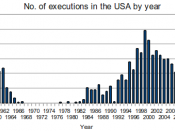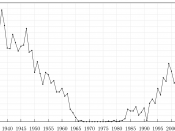HISTORY Capitol punishment can be found in the earliest forms of written documentation. It was mentioned in the Code of Hammurabi, the Bible, and even in the Draconian Code of ancient Greece. Each chronicle imposed death as punishment for various infractions that were sometimes as minor as theft.
However, the death penalty was not used in England during the reigns of King Canute and William the Conqueror. Nonetheless, the torture imposed by these monarchs sometimes resulted in death. English law acknowledged seven major crimes at the end of the fifteenth century. Despite these lenient politics, by the time the seventeenth century arrived, more than 200 crimes punishable by death were recognized. This resulted in the death of 1000 or more individuals.
In the original thirteen American colonies, the death penalty was commonly sanctioned for variety of crimes. Irrationally, American settlers punished blacks, whether their status was slave or free, with death, while whites were punished less severely for the same crimes.
Efforts to abolish the death penalty gathered force the end of the 18th century. In both England and America, this reform was led by the Quakers. In Europe, a brief study called, On Crimes and Punishments, by Cesare Beccaria, inspired numerous distinguished ideologists, including the French philosopher Voltaire, to oppose torture, flogging, and the death penalty. Motivated by the writings of the metaphysician Jeremy Bentham, England repealed almost all of its statutes specifying death as punishment in the nineteenth century. After the 1830s, public executions were no longer ordinary, and terminated entirely after 1936. Several states in the United States, including Michigan and Wisconsin, and several countries together with Venezuela in 1853 and Portugal in 1867 abolished the death penalty entirely.
If entire elimination was not attained, reformers concentrated their struggle on limiting the scope and alleviating the harshness...


